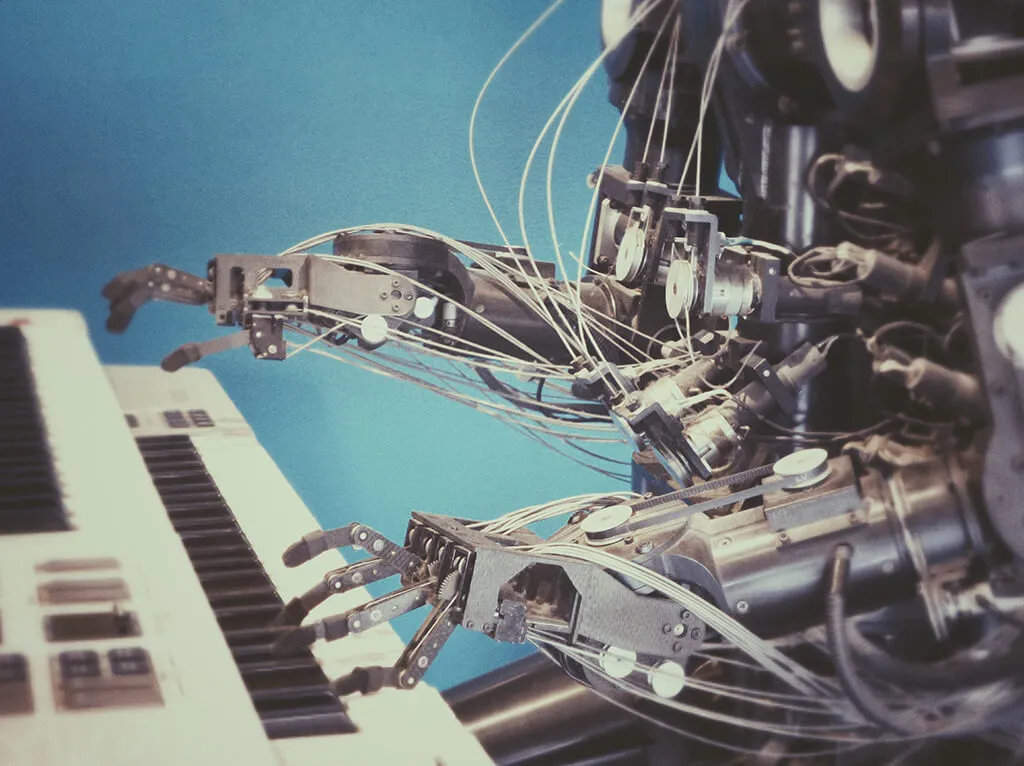
Blog
Thinking
The speed of progress
by
Chris Tredwell
June 20, 2023
I’ve reached the age where I am having to push myself to keep up with new technology and not resist it. Don’t get me wrong, I love technology and how it can improve the way things are done and make people’s lives better. I mean can anyone remember what they did before mobile phones and the internet?
My challenge is that for some technology ‘making people’s lives better’ isn’t always the purpose, and I question whether we as a society are really thinking about some of their implications and long term effects.
Is it healthy for my fridge to know whether I’ve run out of milk? Or my watch to tell me how badly I’ve slept? I suppose what I’m questioning is that some uses of technology are at odds with improving life and many have more complex implications on our daily lives. For example, is using SatNav in the car all the time making us switch off more when we drive and not pay attention to where we are headed? Meaning we don’t ever get a better feel for directions or relationships of places. Or is it helping us concentrate more on driving, and reducing arguments? Or increasing traffic on smaller roads sending vehicles down side streets that weren’t meant to take lots of traffic? All because we’ve chosen ‘shortest route possible’. What about self-service checkouts? Fine, it can be argued that it makes the shopping experience quicker, and certainly more cost effective for the shop given they are making you do the job and saving on staff. But what if chatting to the checkout person is one of the only times you get to speak to someone every week because you live on your own? What’s the impact of that? Their mental health? Their loved ones? Support networks? the NHS? There are hundreds of similar dichotomies in small and large technological advancements.
What I’m suggesting is that with technological advancement comes a sense of responsibility. We should think carefully about whether the next new fangled thing is really right for a particular task. Technology is agnostic, it doesn’t care what you use it for. It’s up to humans to choose how it’s used. It should be used in a positive way that makes things better or simpler. It needs to make a positive difference to the end user otherwise it’s not adding any value. What do they need? How will they feel? Rather than how much money can I make from this.
What if we apply this train of thought to the most current advancement, AI? It is starting to take off and has incredible opportunities and applications, especially in health. From diagnosing diseases to precision medicine, reducing healthcare costs, reducing adverse drug responses and enhancing efficacy. For example, as humans get tired looking at the 20th mammogram of the day, AI learns from repetition and becomes more accurate.
But can we guarantee that AI will be used for good? How do we stop it being used in weapons and to flood the internet with fake videos, images and news so people won’t know what is true anymore? And as fatalistic as this sounds, be a risk to humanity, upending the job market and taking over? How do we ensure something so vastly superior to us does what we say? As Geoffrey Hinton (the godfather of AI, formally at Google) put it, ‘You need to imagine something more intelligent than us, by the same difference that we are more intelligent than a frog’. And Stephen Hawking’s warning, ‘We only have to look at ourselves to see how intelligent life might develop into something we wouldn’t want to meet’.
Much like the impact of the industrial revolution in the 18th Century, we now find ourselves in the fourth industrial revolution, with technology progressing at a crazy pace, faster than ever. Awesome on one hand but do we know what we are unleashing on the world and are we able to control the impact before it’s too late? Just because the tech exists, it doesn’t mean it should be used for everything, crowbarred in just because it can be. We should embrace all new technology so that we understand it, but do so with caution so we can ensure we constantly question the ‘why’. And ensure that it doesn’t run away with itself.